Navigating the world of social security appeals can feel overwhelming, but you're not alone in this journey. Many individuals find themselves needing to challenge decisions made by social security, and understanding the process is crucial for success. Whether it's securing benefits for disability or addressing changes in income, crafting the right appeal letter is a key step. So, if you're ready to take charge of your appeal, let's dive deeper into how to write an effective letter together!
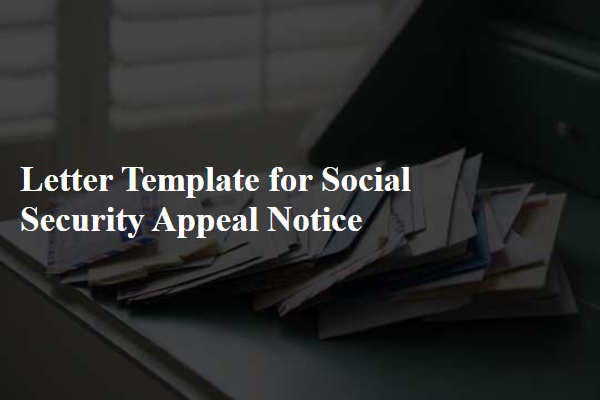
Clear Identification Information
The Social Security Administration (SSA) requires clear identification information for an effective appeal notice. Essential details include the individual's full name, Social Security number, and current address. The notice must reference the specific decision being appealed, including the date of the notice received and the nature of the benefit claim, such as Social Security Disability Insurance (SSDI) or Supplemental Security Income (SSI). Additionally, if applicable, mention any relevant case file number to streamline processing. Accurate identification facilitates swift communication and expedites the review process by the SSA.
Concise Statement of Appeal
A Social Security appeal notice requires a clear and concise statement to articulate the reason for challenging a denial or decision. This statement should highlight the specific benefits in question, such as Social Security Disability Insurance (SSDI) or Supplemental Security Income (SSI), detailing pertinent facts like the application date, denial date, and any medical documentation supporting the claim. Key facts may include the claimant's age, work history, and medical conditions, which must align with Social Security's eligibility criteria. Supporting evidence should be referenced, such as doctor evaluations or test results that substantiate the disability claim, ensuring the appeal accurately addresses the reasons for the initial denial.
Supporting Evidence and Documentation
Social Security appeals require comprehensive supporting evidence and documentation to ensure a thorough review. Key documents include medical records from healthcare providers, detailing diagnoses and treatments related to the claim, typically covering the last twelve months. Statements from specialists, such as neurologists or orthopedic surgeons, can provide additional insight into the claimant's condition. Vocational assessments that detail the impact of disabilities on the ability to work are also crucial, often provided by licensed vocational experts. Personal testimony, including daily activity logs that illustrate limitations due to medical conditions, can strengthen the case. Finally, any correspondence from Social Security Administration, including prior decisions or notices, must be included to outline the context of the appeal.
Contact Information for Follow-up
Social Security appeals require clear and concise communication. Providing accurate contact information is essential for efficient follow-up. Utilize a dedicated phone number, such as a 1-800 number specifically for Social Security inquiries, ensuring it is regularly monitored during business hours. Include an email address tied to Social Security benefits (e.g., ssb.service@example.com) to facilitate digital correspondence. Confirm mailing addresses for any necessary letters, such as the local Social Security office or a legal representative, with specific details like office hours and days of operation. Ensure that all contact details are updated to avoid any delays in processing the appeal, reflecting the urgency and importance of the case.
Request for Timely Review and Response
Inadequate addressing of social security benefits applications can lead to delays in receiving necessary financial assistance. Timely reviews are crucial, especially when applicants, often vulnerable individuals, face urgent needs. Notable statistics reveal that the average processing time for social security appeals can exceed 120 days (as per the Social Security Administration's reports), which can severely impact the lives of affected parties. Locations such as the Social Security Administration offices in major cities like New York or Los Angeles regularly handle numerous cases, compounding the potential for backlogs. Requesting a prompt review and response is essential to ensure that eligible individuals receive their rightful entitlements without unnecessary delays.

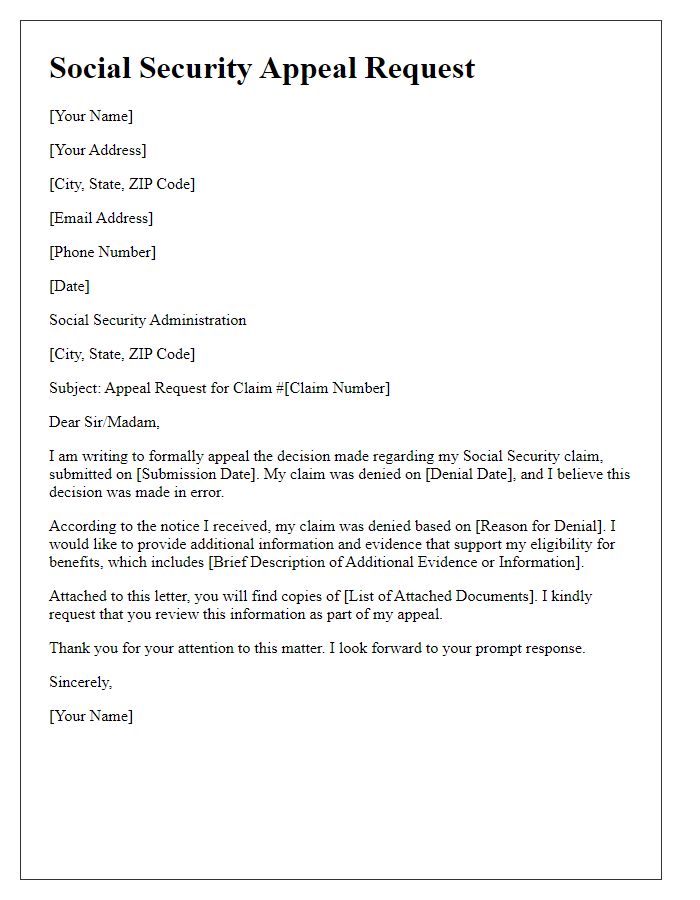
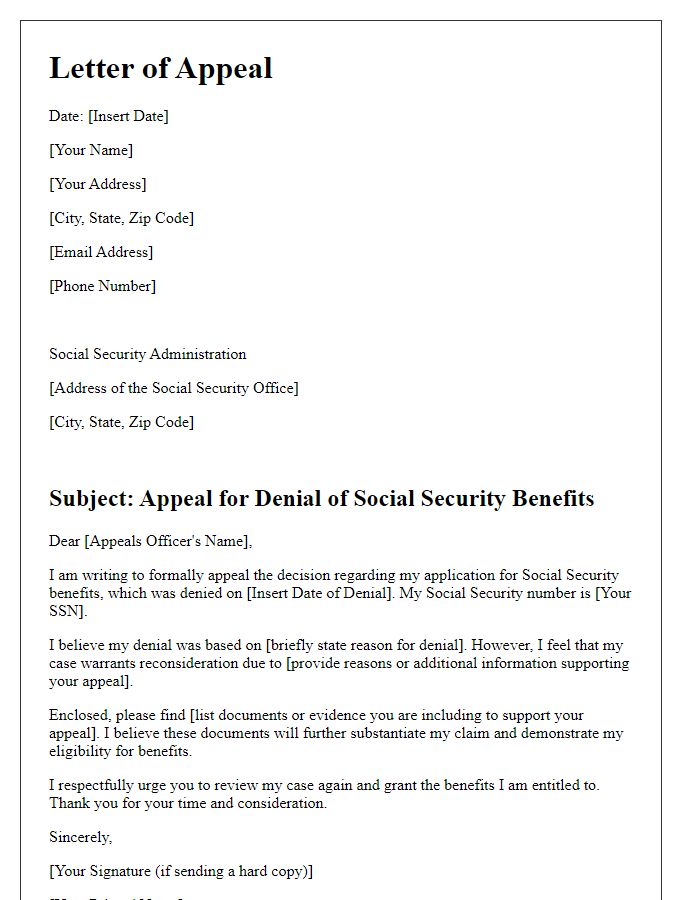
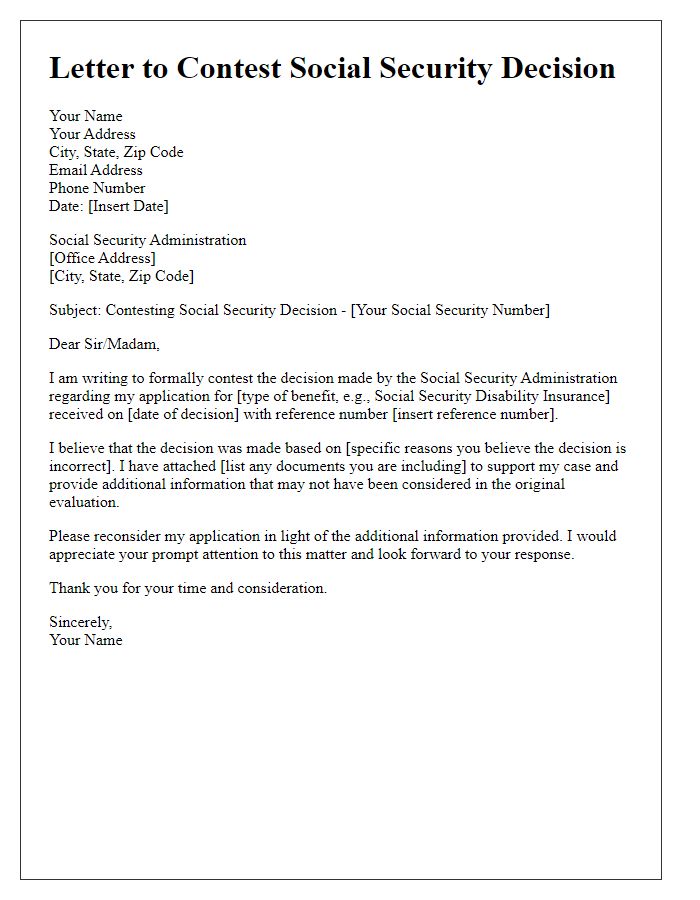
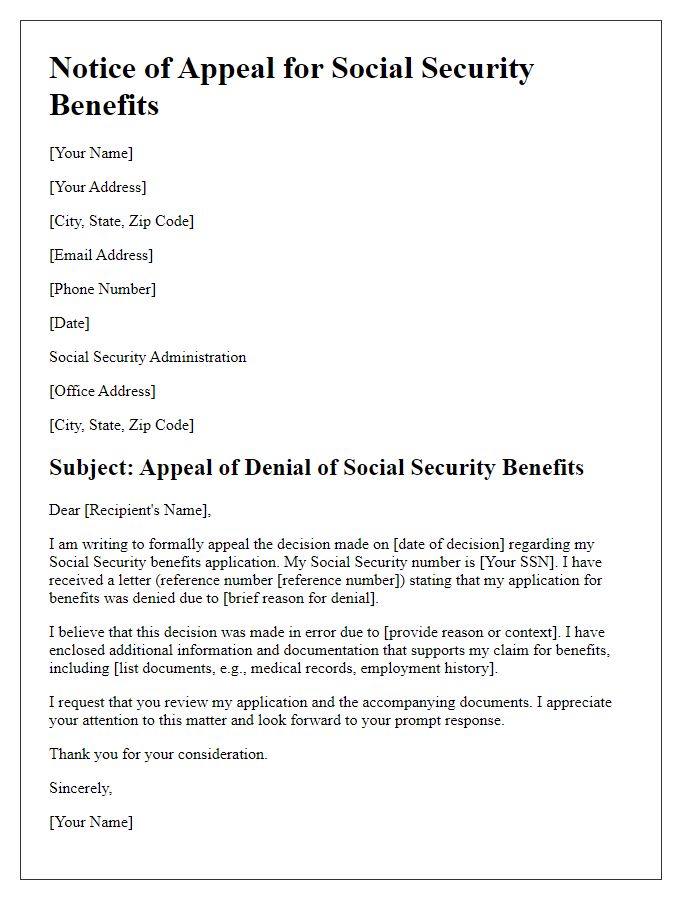

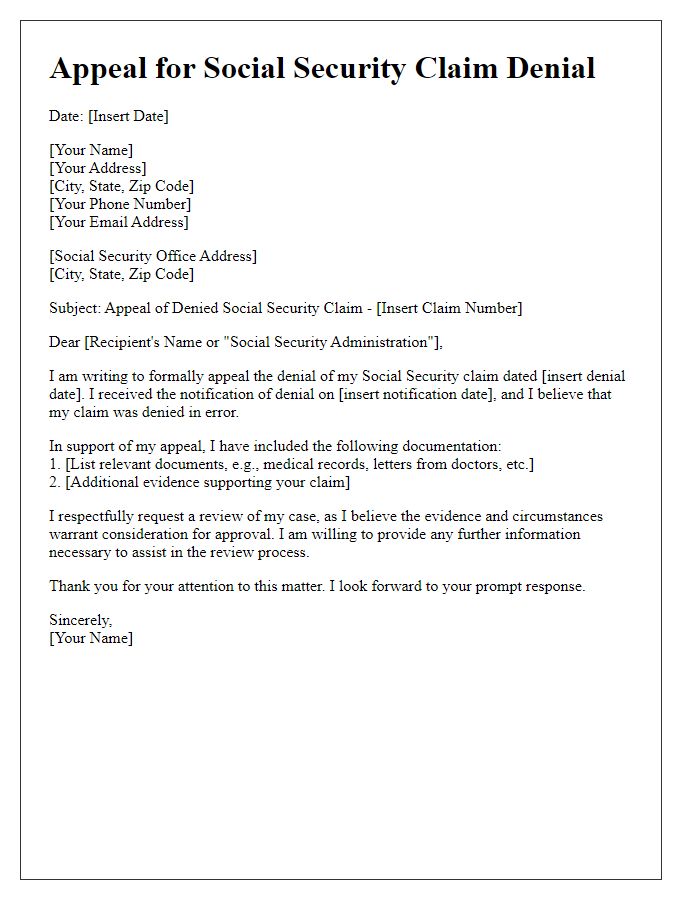
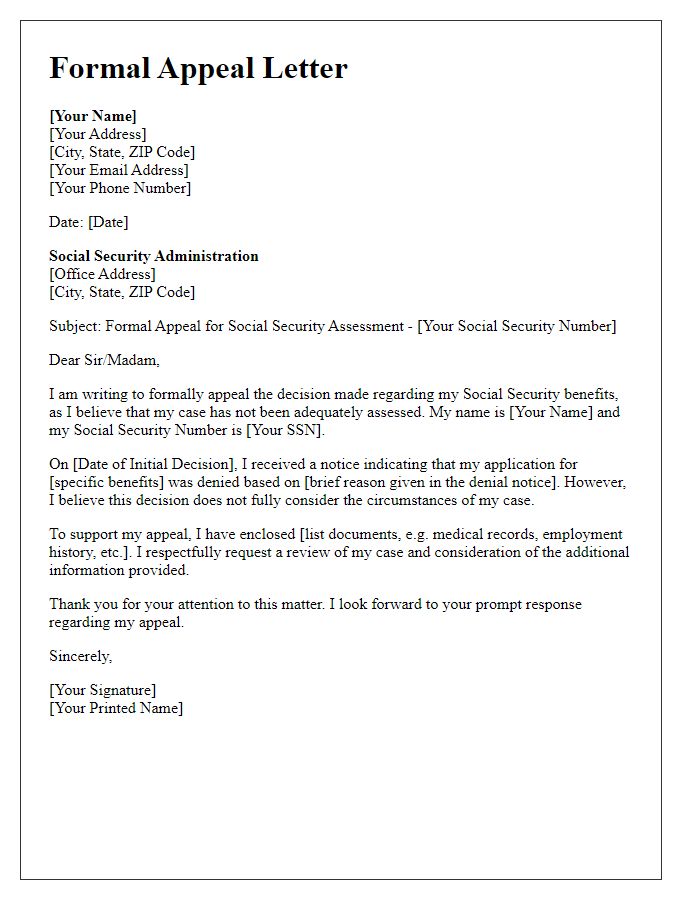
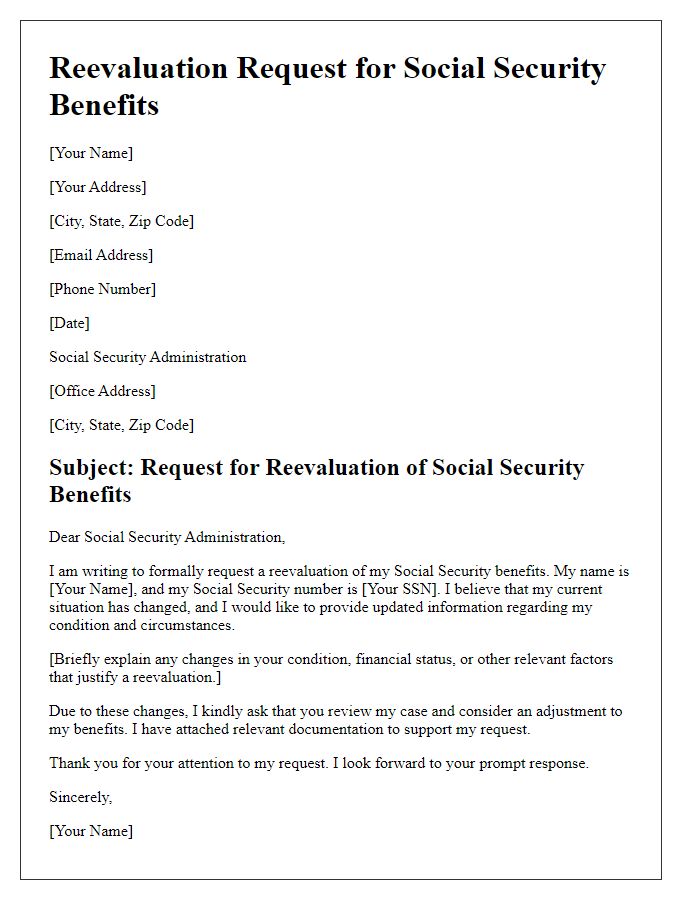
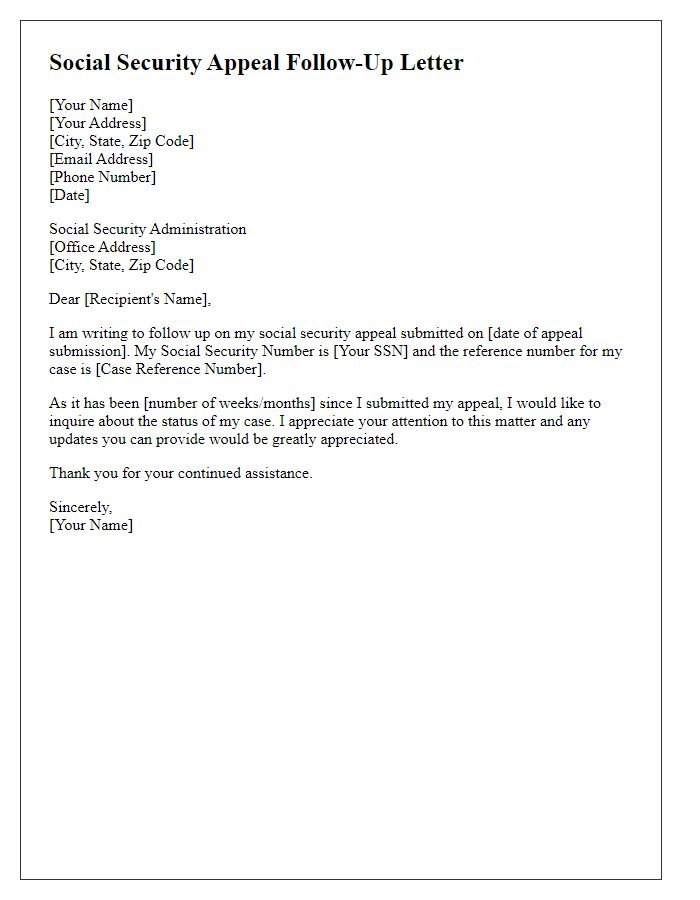
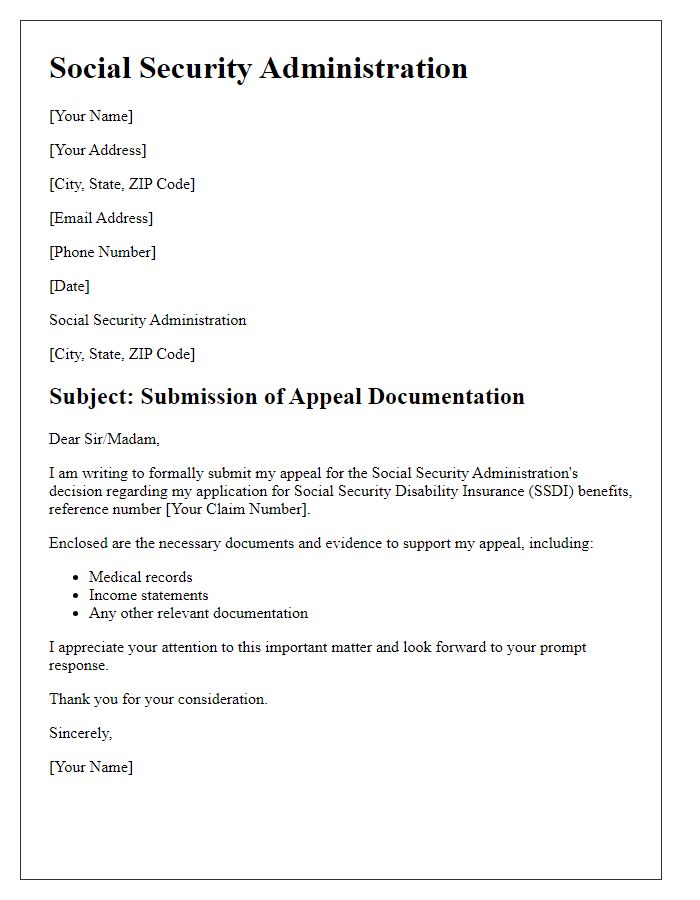


Comments